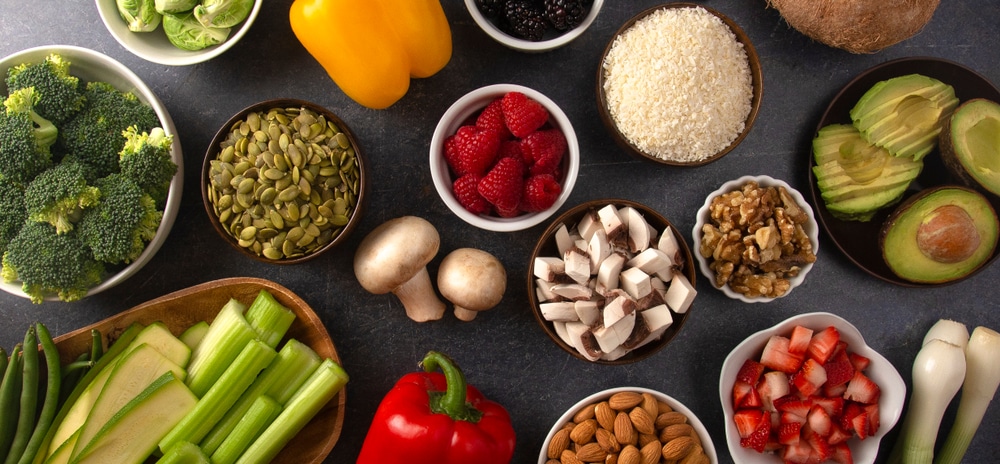‘Let food be thy medicine and medicine be thy food.’ Hippocrates, known as the father of modern medicine, made that statement 7 thousand years ago. Today we rediscover the wisdom behind those words. Evidence from studies shows the importance of our dietary habits to prevent diseases or to change the course of diseases.
Nowadays, everything seems to cause cancer; smoking, alcohol, infections, contaminants in water or food, our genetic disposition, our lack of physical activity, our dietary habits… Looks like it is tough to get away from all the risk factors. According to WHO, cancer is the second leading cause of death. But is there any way for being proactive, being prepared against the odds? Well, it appears so. The scientific researches show the evidence that the best we can do to prevent cancer and many other diseases is to start with our diet.
Cancer and diet
Our bodies need fuel to function. We consume carbohydrates, protein or fat. There is one thing about carbohydrates that when you digest carbs, they will cause a spike in blood glucose and hence in sugar reducing hormone. This hormone moves glucose from the blood into the cells. Here is the thing about sugar reducing hormone and cancer cells; cancer cells have more sugar reducing hormone receptors than healthy cells. So, if you are resistant to sugar reducing hormone, and it is about your being overweight or obese or having type 2 diabetes, then you have more sugar in your blood than your body can regulate. That does not help your body while fighting with cancer cells.
What is the ketogenic diet?
The ketogenic diet is a low-carb, high-fat diet. It requires reducing your carbs intake and replacing them with fat. Because your body does not use carbs as an energy source to produce glucose, fat becomes your body’s energy source. Your liver converts some of this fat to energy molecules called ketones, now you have a significant increase in the levels of ketones in your blood. This will put your body into the metabolic state called ketosis. Including our brain tissue, most of our cells adjust to using ketones. The ketogenic diet can help you lose weight without hunger because you feel full while consuming fat.
‘Everything in excess is opposed to nature.’ Hippocrates
Can following the ketogenic diet prevent you from having cancer? Or any other disease? Fasting or cutting some types of food from diet goes back to as early as 500 BC. There has been a good deal of research and strong evidence favouring about the beneficial effects of the ketogenic diet on many medical conditions such as obesity, type 2 diabetes, cardiovascular diseases, neurological diseases including epilepsy and cancer.
According to WHO (World Health Organization) ‘around, one-third of deaths from cancer is because of the 5 leading behavioural and dietary risks: high body mass index, low fruit and vegetable intake, lack of physical activity, tobacco use, and alcohol use.’ By ketogenic diet, you can avoid three risks. You will lose weight and probably will keep it that way. You will increase your vegetable intake (not fruits because they contain sugar, although there are exceptions like some berries), and you will cut the consumption of alcohol since many alcoholic beverages are high in carbs.
A ketogenic diet helps you prevent cancer by keeping your blood sugar down and lowering the sugar reducing hormone levels low in your blood. How so? Cancer cells consume a lot more glucose than healthy cells. Somehow, they are not very good at using ketones in your blood as an energy source. When your body is in a state of ketosis, meaning that your blood sugar is very low, then cancer cells will starve for lack of glucose in the blood.
Many follow the ketogenic diet for weight loss and when used for weight loss or -control about 60-75% of calories are coming from fat, with 15-30% of calories from protein and 5-10% of calories from carbs. If it is used therapeutically, the fat content may be higher (up to% 90 of calories) and accordingly the protein content would be lower.
How to follow a ketogenic diet?
To follow a ketogenic diet, you must limit any food high in carbs.
- Foods that contain high levels of sugar such as soda, fruit juice, smoothies, cake, ice cream, candy, some sauces.
- Grains or starches such as rice, pasta, cereal, oatmeal.
- All fruit, except small portions of berries like blueberries or strawberries.
- Beans or legumes such as peas, kidney beans, lentils, chickpeas.
- Root vegetables and tubers such as potatoes, sweet potatoes, carrots, parsnips.
- Any low-fat or diet products, including low-fat dairy products, which are highly processed and often high in carbs.
- Unhealthy fats such as margarine, mayonnaise.
- Most alcohols, including wine, beer and cocktails: Many alcoholic beverages are high in carbs.
Before you follow a ketogenic diet, you must consult with a doctor or a specialist to clarify that this diet will improve your health. It is also not recommended to stick to a strict ketogenic diet for an extended period.





